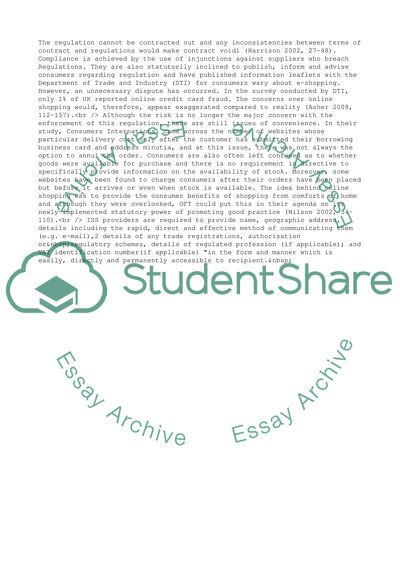Cite this document
(Main Features and the Role of E-business and E-commerce Coursework, n.d.)
Main Features and the Role of E-business and E-commerce Coursework. Retrieved from https://studentshare.org/business/1742600-e-business-law
Main Features and the Role of E-business and E-commerce Coursework. Retrieved from https://studentshare.org/business/1742600-e-business-law
(Main Features and the Role of E-Business and E-Commerce Coursework)
Main Features and the Role of E-Business and E-Commerce Coursework. https://studentshare.org/business/1742600-e-business-law.
Main Features and the Role of E-Business and E-Commerce Coursework. https://studentshare.org/business/1742600-e-business-law.
“Main Features and the Role of E-Business and E-Commerce Coursework”. https://studentshare.org/business/1742600-e-business-law.


